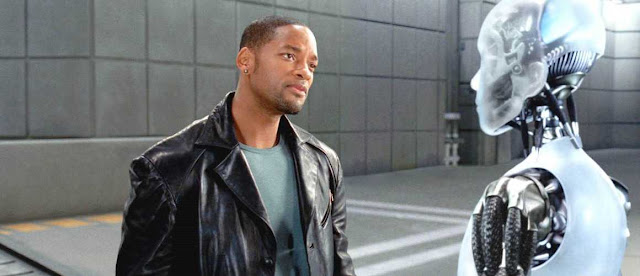We live in a world where technological developments occur almost every day in our lives. One of these developments is the use of algorithms in the decision-making process. They have replaced human beings in the decision-making process. Although it is fairly useful, people are still unsure about the consequences that may occur because of their decisions.

From criminal justice to education, algorithms began showing their decision-making skills. But will our rights be properly observed and protected while making such decisions? This is one of the most controversial questions in the world today.
The Council of Europe recently published an article entitled "Algorithms and Human Rights - A Study on the Human Rights Dimension in Automated Data Processing Techniques and Potential Organizational Impacts". This study, prepared by the Committee of Experts on Internet Intermediaries (MSI-NET) of the Council of Europe, focuses on the disadvantages of using algorithms in decision-making.
The study shows that it is difficult to predict how the algorithm works to make a decision. This varies depending on the type of functions performed by the algorithms and the level of abstraction as well as the complexity of the automated processing used. Thus, each decision will have a different impact on humans. This study also helps to understand the different human rights concerns arising from the increasing role of algorithms in the decision-making process.
In fact, this study makes us wonder who is responsible for these human rights violations. A programmer, operator or person who has implemented decisions can be behind these violations. Thus, it encourages us to think about whether or not the Khawarzmi decision-making process is useful to us compared to the decisions made by humans.
This expert study also conducted a study to determine how algorithms are run in line with established human rights standards, including principles of the rule of law and judicial processes. If these algorithms are used correctly, they will help us get a lot of benefits in terms of efficiency and time consumption.
Thus, before fully relying on algorithms to implement new decisions, it is necessary to examine the effects that may be caused on the fundamental rights of human beings. No matter how efficient the technology is, it requires an expert to operate without any errors.
Algorithms have a wide range of applications in the current world. They are involved in screening work orders, calculating credit scores, providing loans, mortgages, etc. They are also involved in the release of criminals from prison. Decisions made at crucial moments will have a greater impact on humans. Thus, it is necessary to be more vigilant while dealing with these algorithms.
Although many people support the use of algorithms in decision making, the decisions they make can not be compared to the efficiency of human decisions. We can only hope that the technology will arrive at the required methods to correct the current defects in the algorithms as soon as possible.
The Council of Europe recently published an article entitled "Algorithms and Human Rights - A Study on the Human Rights Dimension in Automated Data Processing Techniques and Potential Organizational Impacts". This study, prepared by the Committee of Experts on Internet Intermediaries (MSI-NET) of the Council of Europe, focuses on the disadvantages of using algorithms in decision-making.
The study shows that it is difficult to predict how the algorithm works to make a decision. This varies depending on the type of functions performed by the algorithms and the level of abstraction as well as the complexity of the automated processing used. Thus, each decision will have a different impact on humans. This study also helps to understand the different human rights concerns arising from the increasing role of algorithms in the decision-making process.
In fact, this study makes us wonder who is responsible for these human rights violations. A programmer, operator or person who has implemented decisions can be behind these violations. Thus, it encourages us to think about whether or not the Khawarzmi decision-making process is useful to us compared to the decisions made by humans.
This expert study also conducted a study to determine how algorithms are run in line with established human rights standards, including principles of the rule of law and judicial processes. If these algorithms are used correctly, they will help us get a lot of benefits in terms of efficiency and time consumption.
Thus, before fully relying on algorithms to implement new decisions, it is necessary to examine the effects that may be caused on the fundamental rights of human beings. No matter how efficient the technology is, it requires an expert to operate without any errors.
Algorithms have a wide range of applications in the current world. They are involved in screening work orders, calculating credit scores, providing loans, mortgages, etc. They are also involved in the release of criminals from prison. Decisions made at crucial moments will have a greater impact on humans. Thus, it is necessary to be more vigilant while dealing with these algorithms.
Although many people support the use of algorithms in decision making, the decisions they make can not be compared to the efficiency of human decisions. We can only hope that the technology will arrive at the required methods to correct the current defects in the algorithms as soon as possible.

